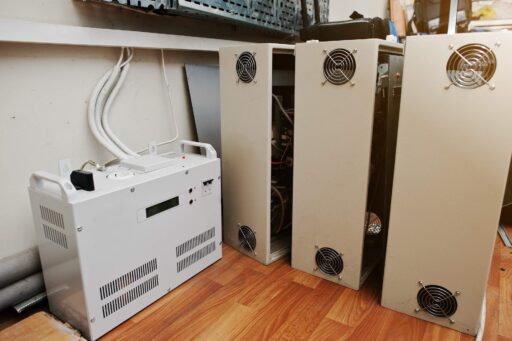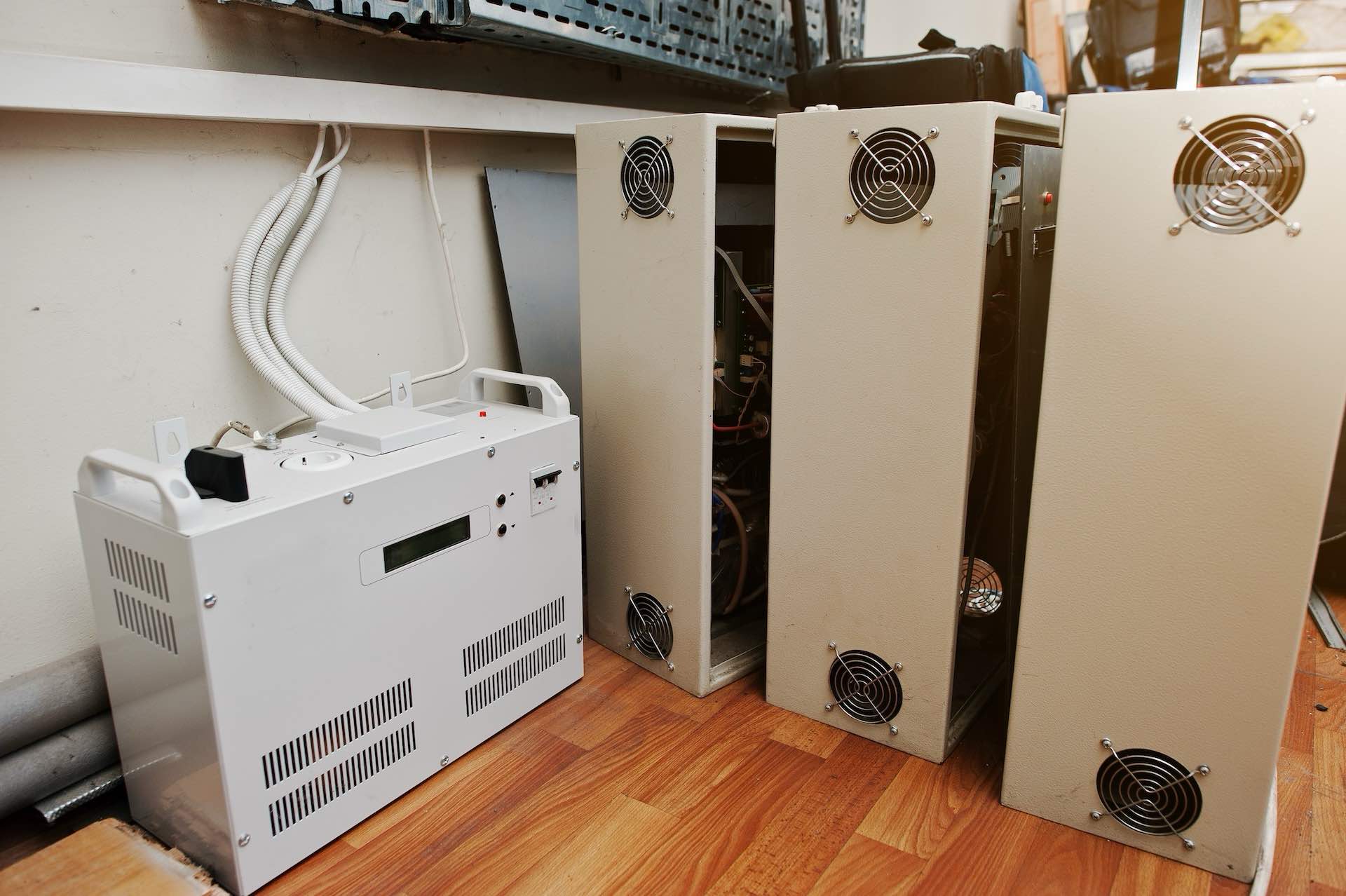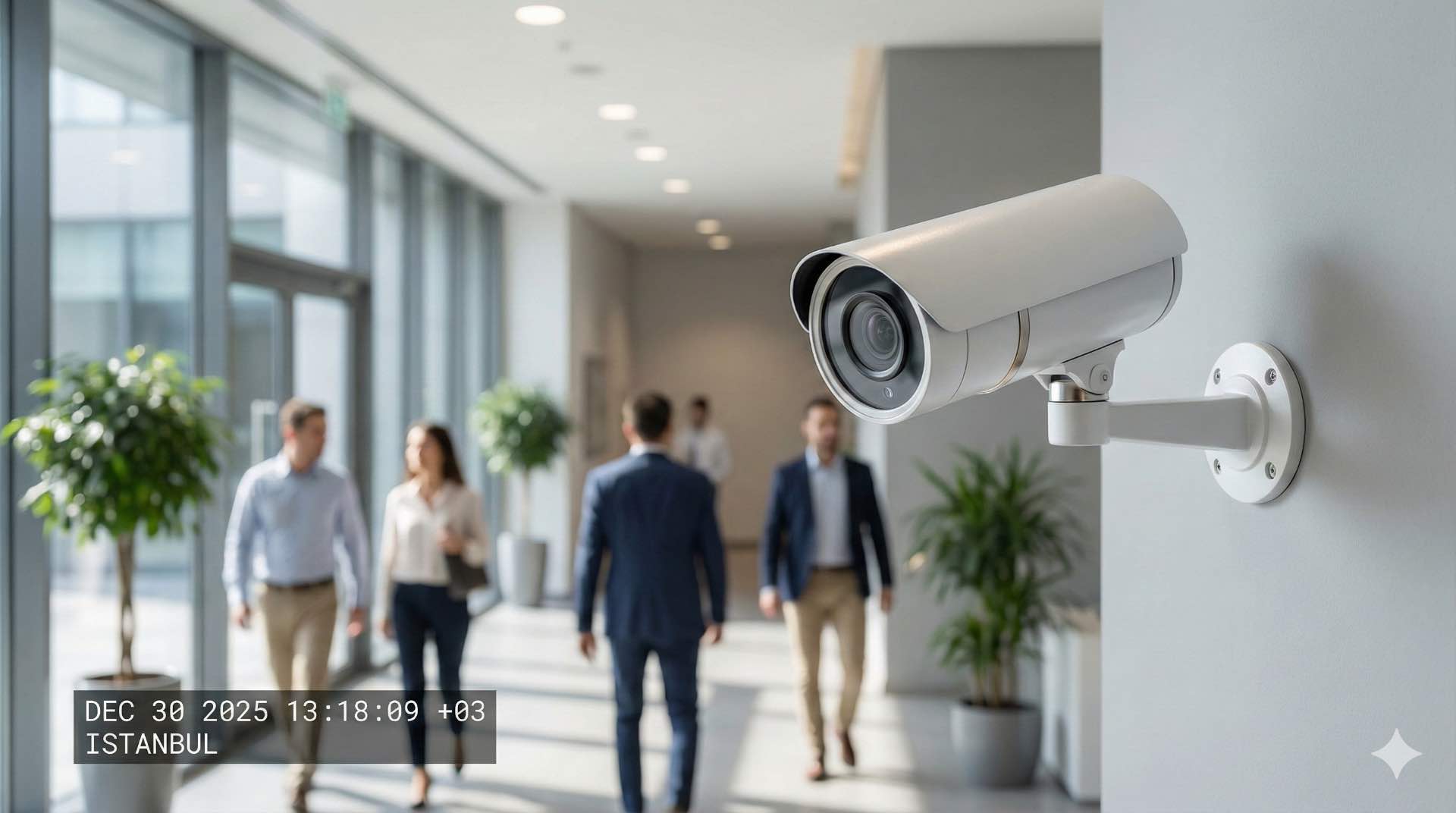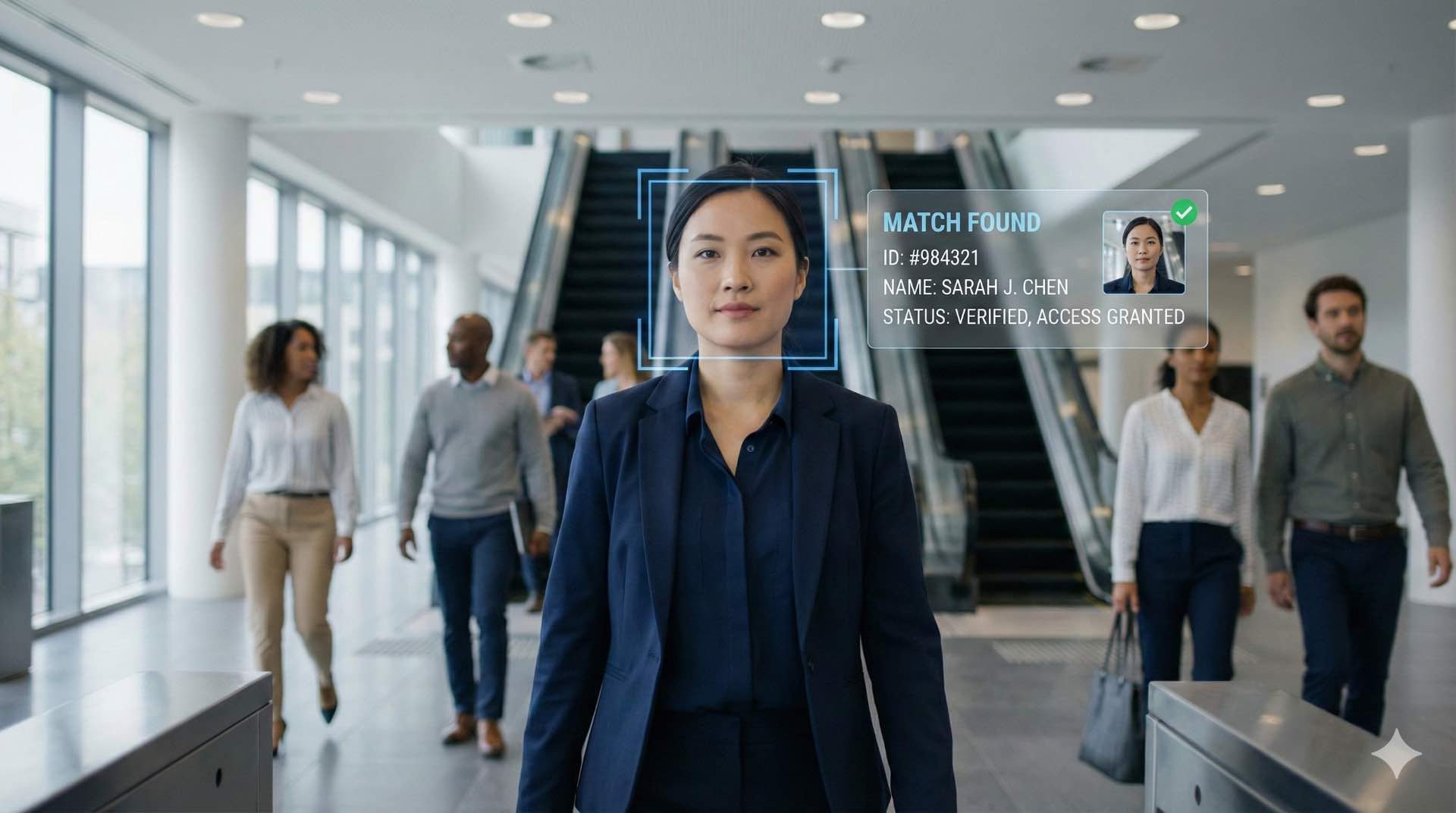UPS systems provide reliable power backup for CCTV systems, ensuring continuous CCTV power backup and safeguarding surveillance operations.
A UPS (Uninterruptible Power Supply) is essential for CCTV systems, as it ensures reliable power backup (for CCTV power backup) during power failures. It guarantees that your surveillance system continues to operate seamlessly, preventing any interruptions that could jeopardize security. The role of a UPS in a CCTV system is critical because it helps avoid data loss, system downtime, and missed events in case of power outages. By providing continuous power, a UPS systems ensures that cameras, NVRs (Network Video Recorders), and other surveillance equipment remain operational, even when there is a power failure.
The importance of a UPS for CCTV systems is clear, particularly in mission-critical environments where security cannot be compromised. In these scenarios, a UPS ensures that the surveillance system is always functional, providing an added layer of reliability. Without a reliable power backup (for CCTV power backup) system, CCTV systems would be vulnerable to power interruptions, potentially leaving blind spots in surveillance coverage.
What is a UPS (Uninterruptible Power Supply)?
A UPS is a device that provides backup power to essential equipment when the main power source fails. In the context of CCTV systems, a UPS ensures continuous operation by supplying power during outages. It typically consists of several components: a battery, an inverter, and a rectifier. The battery stores energy for use when the main power supply fails, the inverter converts DC power from the battery into AC power for equipment use, and the rectifier changes AC power into DC for charging the battery. This combination of components enables a UPS to provide uninterrupted power to CCTV systems, ensuring their operation remains unaffected during power failures.
How Does a UPS Work?
Basic Functionality
A UPS works by constantly monitoring the main power supply. When it detects an outage or power interruption, it switches to battery power and ensures that the connected CCTV equipment (for CCTV power backup) continues to operate without any disruption. This seamless transition is crucial for maintaining video surveillance without any gaps in coverage. The UPS also protects CCTV systems from power surges, voltage spikes, and fluctuations, which can damage sensitive equipment.
Types of UPS Systems (Reliable Power Backup)
- Standby UPS: This type provides basic backup power during outages. It’s typically used in small-scale CCTV setups. It only activates when there’s a loss of power, making it a cost-effective choice for systems that do not require continuous power regulation.
- Line-Interactive UPS: This UPS system offers more protection by regulating voltage fluctuations. It is ideal for small to medium CCTV installations, where voltage regulation and reliable backup power are necessary.
- Double-Conversion UPS: The most advanced UPS type, it provides continuous power conditioning and is used in mission-critical CCTV systems. It ensures clean, stable power is delivered to surveillance equipment, making it the best choice for large-scale installations where reliability is paramount.
Battery Capacity
Battery capacity is measured in VA or kVA and determines how long the UPS can provide backup power. The higher the battery capacity, the longer the UPS can keep the CCTV system running during power interruptions. Choosing the right battery capacity depends on the power consumption of the CCTV equipment and how long the backup power is required.
Real-World Applications of UPS for CCTV Systems (Reliable Power Backup)
Small-Scale CCTV Installations
For small-scale CCTV systems, such as in homes or small offices, UPS systems are used to provide power backup for a limited number of cameras and NVRs. A smaller UPS unit with lower capacity is typically sufficient to maintain power for these setups during short outages.
Large-Scale CCTV Installations
In large commercial or industrial CCTV systems, multiple cameras, NVRs, and monitoring stations require more extensive backup power. A larger UPS system with higher capacity and extended runtime is required to ensure that the entire CCTV system continues to operate during power failures. Factors such as the total number of devices, their power consumption, and required uptime play a critical role in determining the appropriate UPS size.
Outdoor and Remote Surveillance
For outdoor or remote CCTV installations, where power outages are frequent, a UPS is indispensable. These setups often face additional challenges, such as temperature fluctuations and weather-related issues. Therefore, it’s essential to use weatherproof UPS models that can withstand environmental conditions. Additionally, maintenance practices such as regular battery checks are crucial for keeping the UPS functioning properly in such settings.
Common Issues and Troubleshooting with UPS Systems for CCTV
Battery Failure
Battery failure is one of the most common issues with UPS systems. Over time, UPS batteries degrade, leading to a loss of backup power (for CCTV power backup). Regular battery maintenance and timely replacement are essential to ensure that the UPS continues to function optimally. Monitoring tools can help identify when batteries are nearing the end of their lifespan.
Overload Issues
UPS systems can become overloaded if they’re asked to power too many devices beyond their capacity. An overload can result in a power failure, affecting the connected CCTV system. To avoid this, ensure that the total wattage of the CCTV equipment doesn’t exceed the UPS’s rated capacity.
Short Battery Runtime
A short battery runtime can occur if the UPS is undersized or if the battery is no longer capable of holding a charge. To prevent this, carefully calculate the total power requirement of the CCTV system and choose a UPS with a sufficient battery capacity. Additionally, ensure that the UPS is regularly maintained to avoid unexpected issues.
Temperature Sensitivity
Temperature plays a significant role in UPS performance. High temperatures can cause the battery to degrade faster, reducing its efficiency. Installing the UPS in a cool, well-ventilated area is essential to maintain its longevity and efficiency.
Best Practices for Using UPS in CCTV Systems (Reliable Power Backup)
Sizing the UPS
Properly sizing a UPS is critical for ensuring it can handle the power needs of the CCTV system. Factors like the number of cameras, NVRs, and monitors must be considered when selecting the UPS. Always ensure that the UPS has enough capacity to power the entire system during an outage.
Maintenance and Testing
Regular maintenance is essential for keeping a UPS in good working condition. Perform routine checks on the battery health, charging cycles, and overall system performance. Testing the UPS under load conditions ensures that it’s ready for use in case of a power outage.
Monitoring and Alerts
UPS monitoring tools can help track the status of the system and alert users about potential issues such as low battery levels, overloads, or temperature problems. These systems can help prevent unexpected failures and ensure continuous power backup (for CCTV power backup) for CCTV systems.
UPS Placement
Place the UPS in a well-ventilated, temperature-controlled environment to ensure optimal performance. Avoid placing it near heat sources or in areas prone to humidity. Proper placement is key to maintaining the efficiency and lifespan of the UPS.
Comparing Different UPS Systems for CCTV Power Backup
| UPS Type | Battery Capacity | Protection Level | Best For | Advantages | Limitations |
|---|---|---|---|---|---|
| Standby UPS | Low to Medium | Basic protection | Small-scale CCTV setups, home offices | Low cost, simple design, reliable for short outages | Limited protection, no voltage regulation |
| Line-Interactive UPS | Medium | Moderate protection | Small to medium CCTV installations | Provides voltage regulation, cost-effective | May not be suitable for sensitive equipment |
| Double-Conversion UPS | High | Maximum protection | Large-scale CCTV systems, mission-critical setups | Continuous power conditioning, zero transfer time | High cost, requires more maintenance and space |
Conclusion
In conclusion, a UPS system is essential for ensuring reliable power backup for CCTV systems. It plays a crucial role in maintaining continuous surveillance operations, safeguarding against data loss, and ensuring that the CCTV system operates during power failures. Choosing the right UPS for your CCTV system depends on several factors, such as system size, equipment type, and required backup duration. By investing in the right UPS solution and following best practices for installation and maintenance, you can ensure the longevity and reliability of your CCTV system, even in the event of a power outage.





